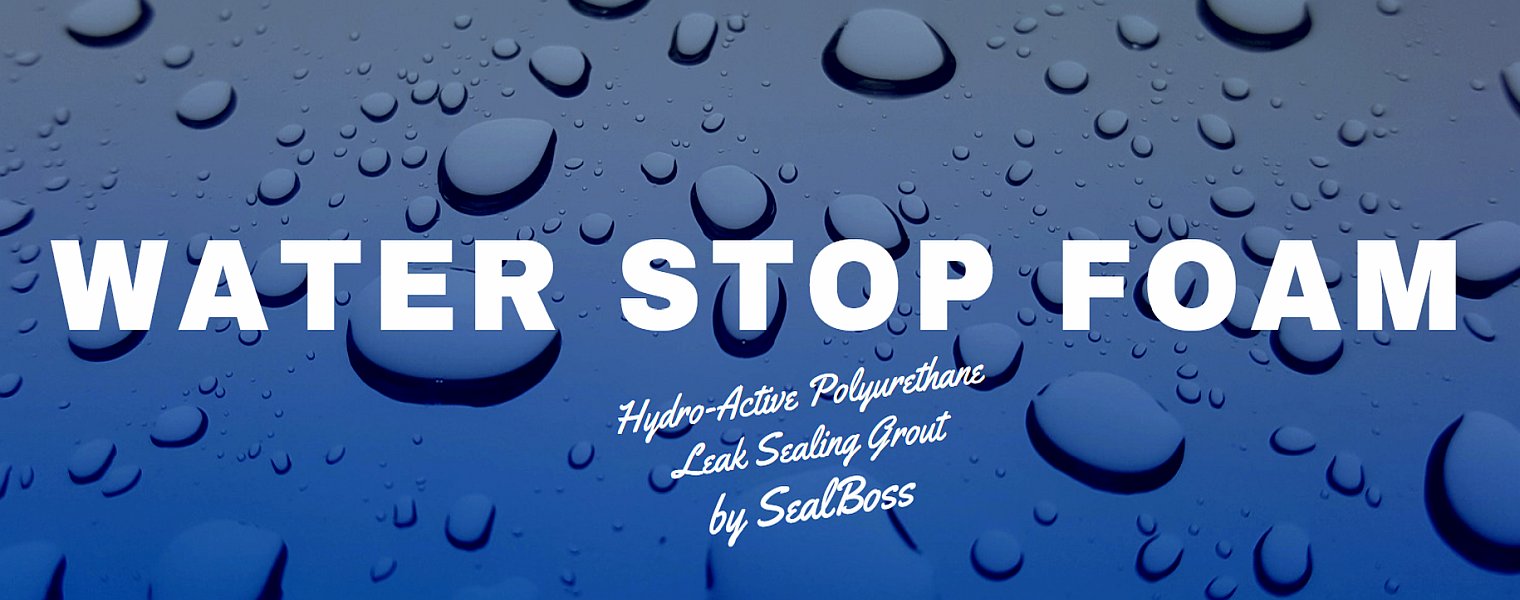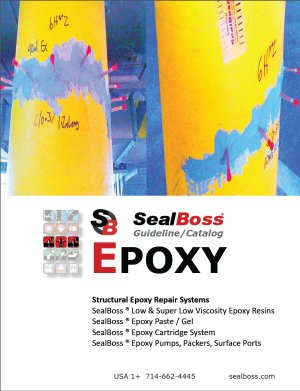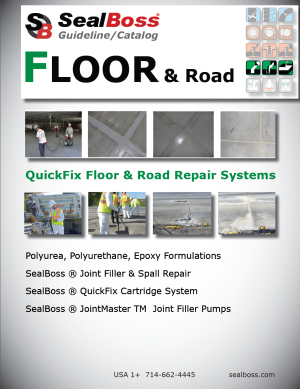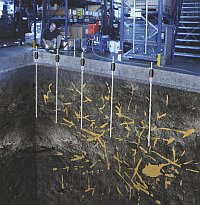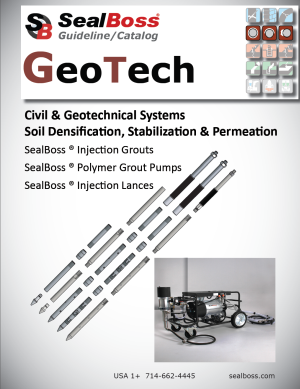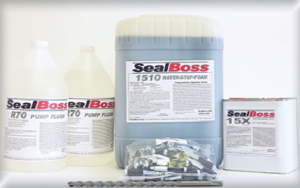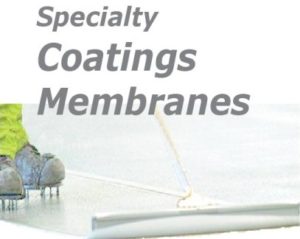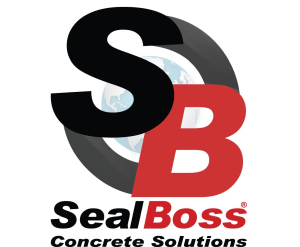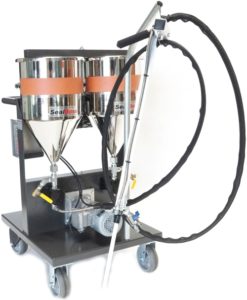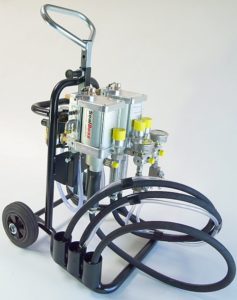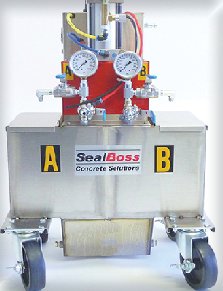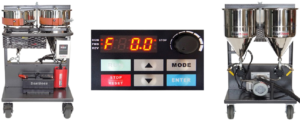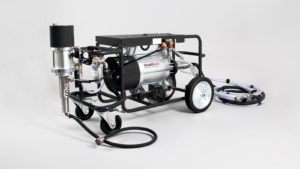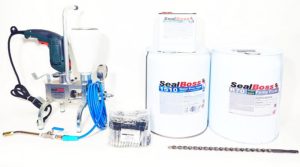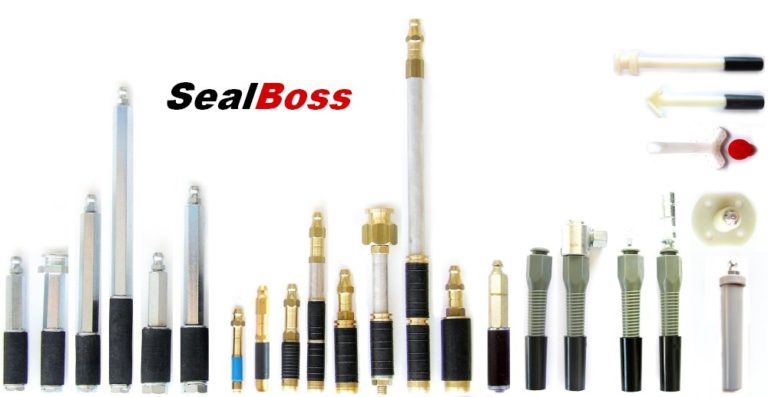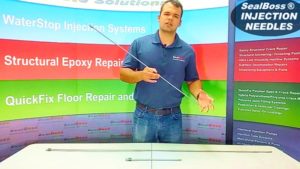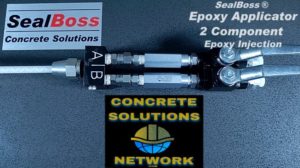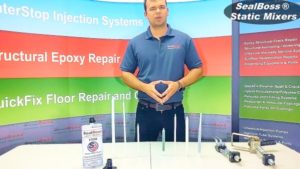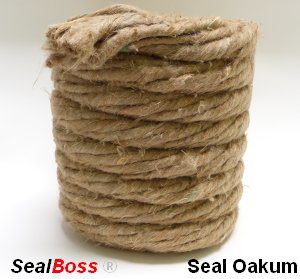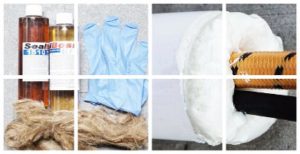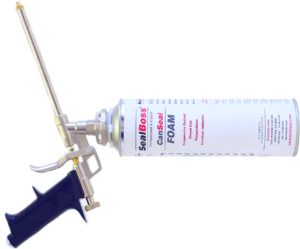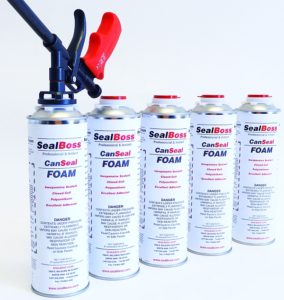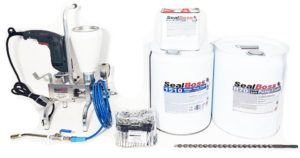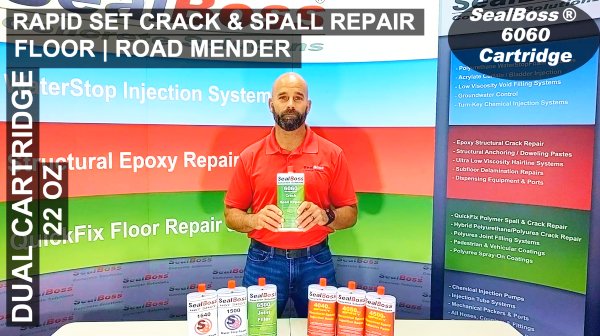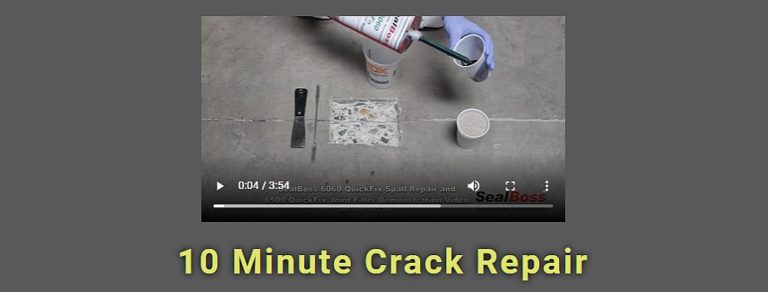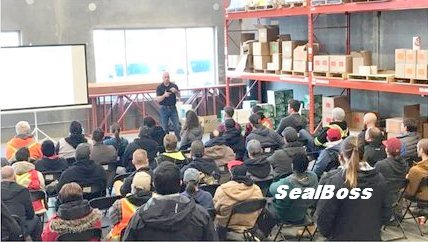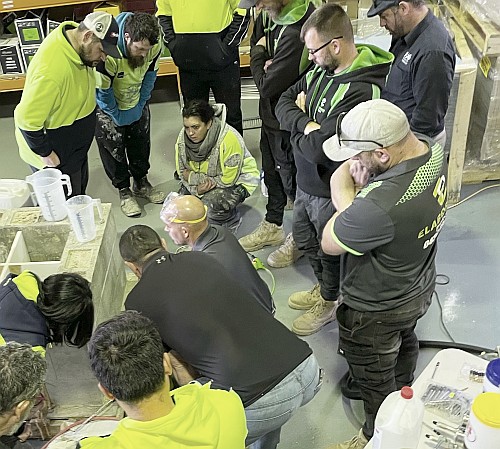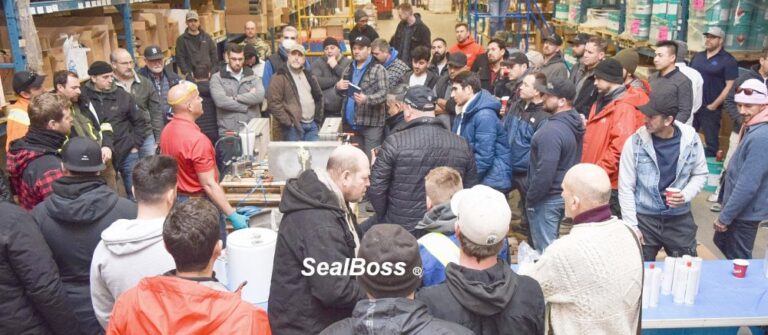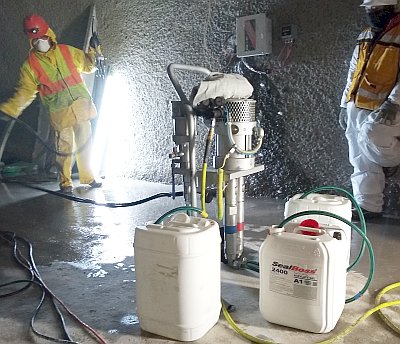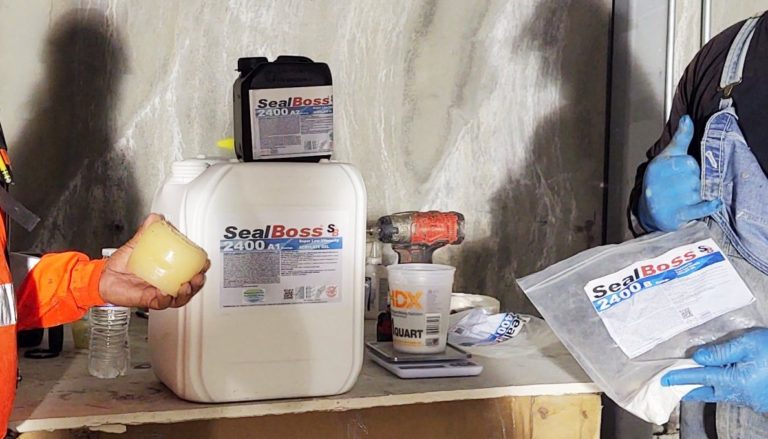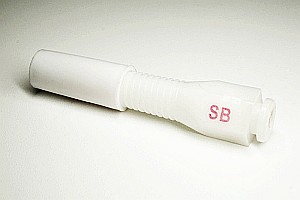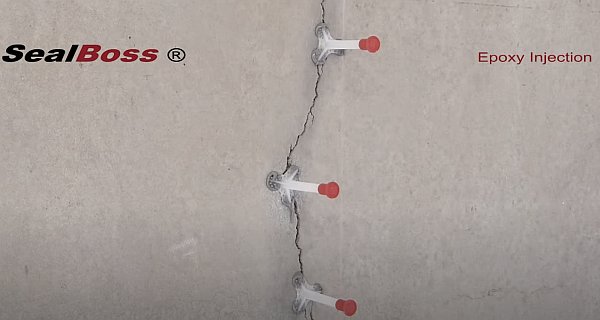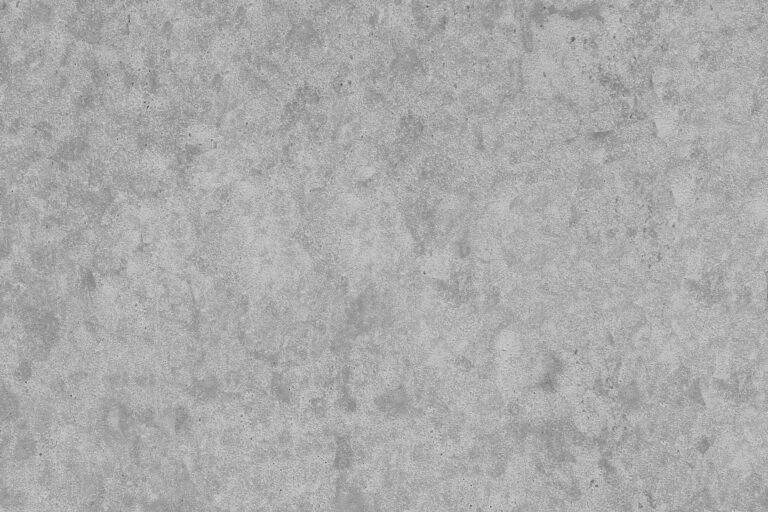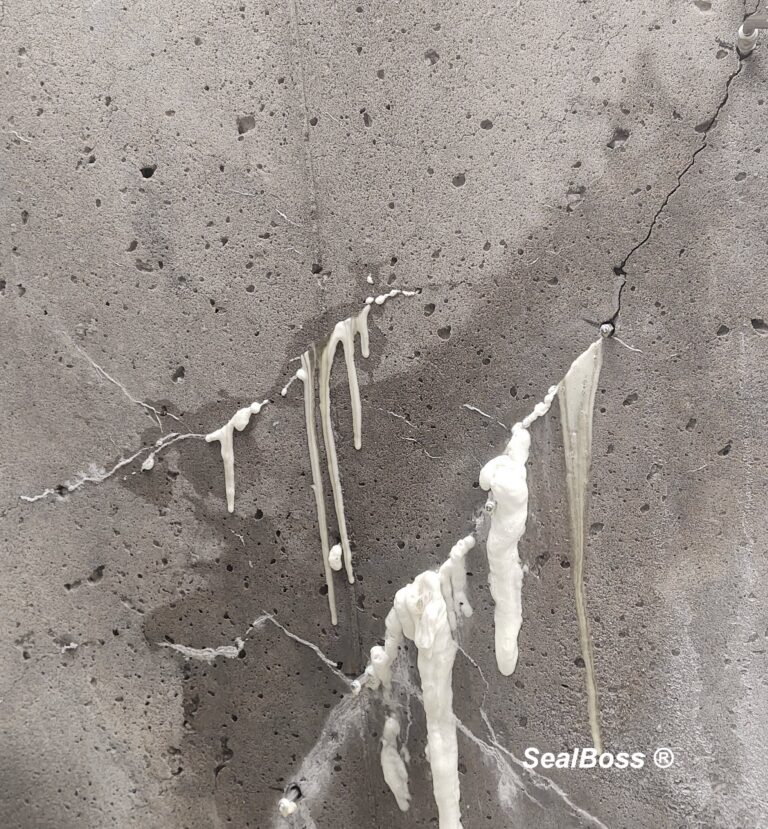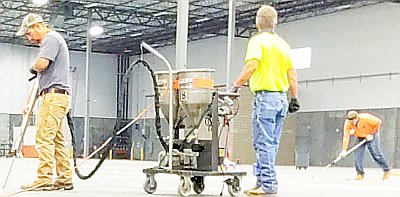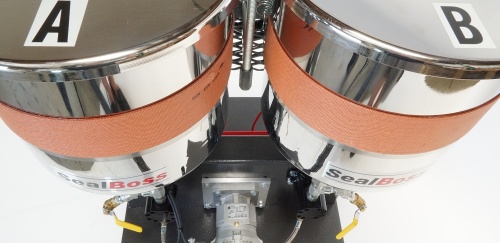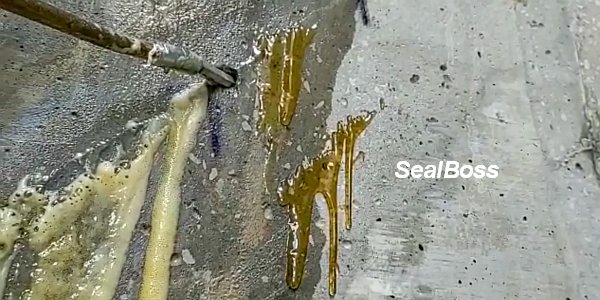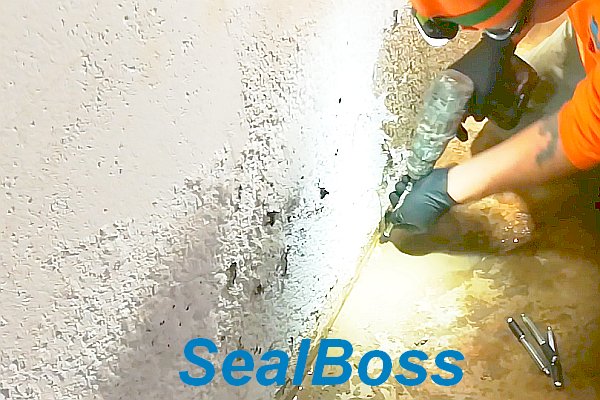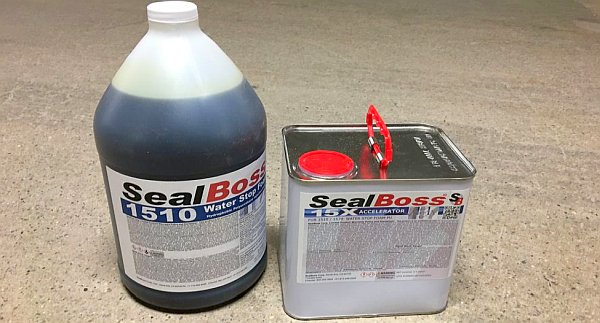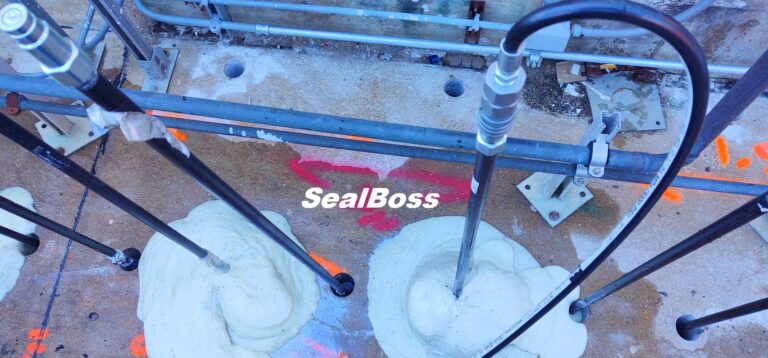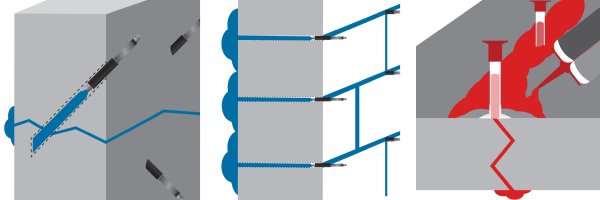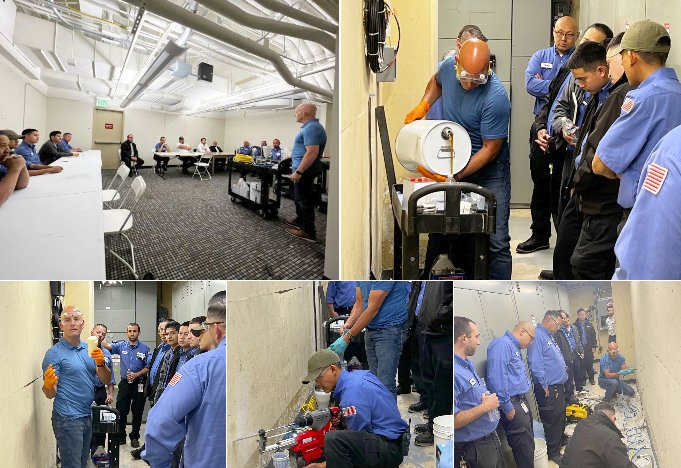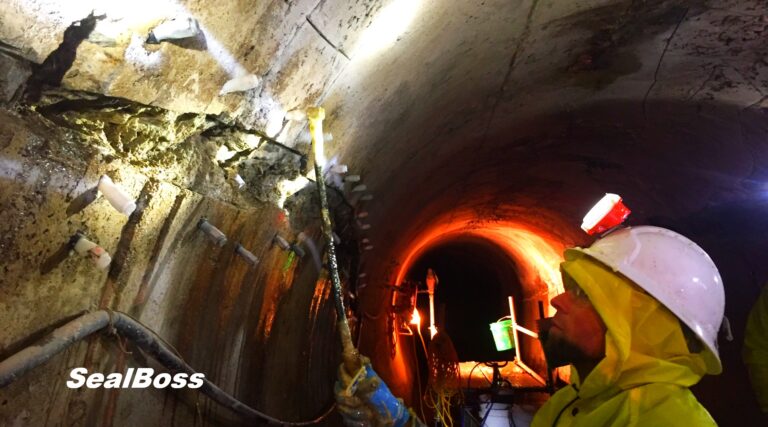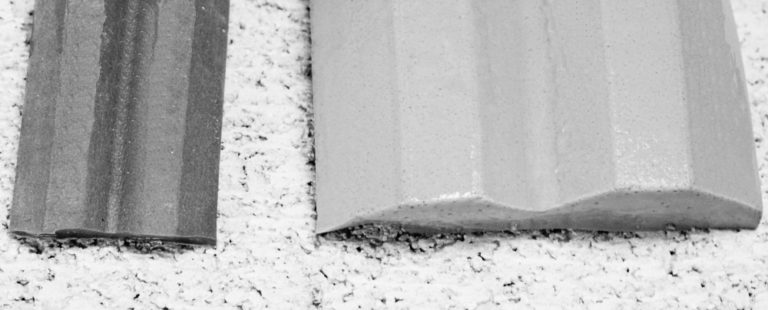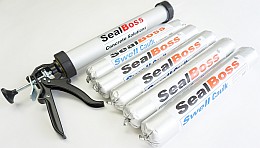
Elevator Pit Waterproofing
Elevator Pit Waterproofing and Leak Sealing
Introduction
Polyurethane grout is a highly efficient method for waterproofing and sealing leaks in elevator pits. This liquid polymer, when injected into existing cracks, joints, or defects within the structure, interacts with water to transform into a solid, impermeable and permanent seal. The polyurethane foam grout expands to fill any voids, thereby cutting off all water entry points and establishing a robust, watertight barrier. This approach is particularly effective in addressing the complex leakage issues often encountered in elevator pits, ensuring long-term protection and maintaining the structural integrity and safety of the elevator system.
Maintenance Needs in Elevator Systems
Hydraulic elevators in commercial and industrial buildings rely on elevator pits for their operation. These pits, often overlooked, are critical for safety and efficient functioning.
Water Leakage: A Serious Concern
Water leakage in elevator pits, from groundwater or pipe leaks, poses significant risks to the elevator system and building compliance. The presence of water can lead to the formation of a mix of hydraulic oil and water, creating environmental hazards and safety concerns.
Risks of Ignoring Water Leakage
Ignoring water in elevator pits can have adverse consequences
- Environmental and Safety Hazards
Oil and water mixtures cause environmental contamination and fire hazards - Equipment Damage
Corrosion and failure of elevator components due to prolonged water exposure increase maintenance costs and downtime - Legal and Regulatory Implications
Non-compliance with environmental regulations due to oily water can result in fines and legal action
Prompt action is essential to prevent these risks and mitigate costly removal processes.
Polyurethane Grout: An Effective Solution
Polyurethane grout is a construction material ideal for sealing and waterproofing elevator pits. It reacts with water to form a solid foam, expanding to fill voids and creating a watertight barrier.
Benefits of Polyurethane Grout
- Durability
Forms a long-lasting seal - Cost-Effectiveness
Longevity reduces long-term costs - Environmental Compliance
Helps in managing oily water, aligning with environmental standards - Minimal Disruption
Quick process, crucial for busy commercial settings
Regular Maintenance and Preventative Strategies
Regular maintenance is vital to prevent water accumulation and extend the elevator system’s life.
Key practices Include
- Regular Inspections
Early detection of water ingress, corrosion, and hydraulic system damage - Cleaning and Debris Removal
Prevents drainage obstruction - Drainage System Checks
Ensures proper functioning and identifies weak points
Seal Integrity Checks: Maintains the effectiveness of seals against water ingress
Incorporating preventative measures like water detection systems, climate control, and landscaping can further safeguard against water issues.
Choosing a Waterproofing Professional
Selecting the right contractor for polyurethane grout waterproofing and leak repair requires consideration of their experience, customer feedback, and pricing transparency. Important aspects include:
- Proven track record in elevator pit repair
- Positive reviews and references
- Detailed quotations and pricing clarity
- Understanding of specific pit issues and provision of detailed work plans and warranties
A long-term relationship with a reliable contractor enhances maintenance strategy effectiveness.
Elevator Pit Repair Expertise
SealBoss can assist in hydraulic elevator pit repairs, offering:
- Technical Guidance
Expert support and customized sealing solutions - Contractor Referral
Connections with skilled contractors for quality repairs - Long-Term Partnership
Ongoing technical support for cost-effective and environmentally friendly solutions
Partnering with SealBoss provides property owners and managers with expertise in addressing complex elevator pit leaks, saving time and costs compared to ad-hoc repairs.
For more information, contact SealBoss at 714-662-4445.
Summary
Elevator pit waterproofing is critical in maintaining the safety and efficiency of hydraulic elevators in commercial and industrial buildings. Water leakage poses serious risks, and using polyurethane grout for sealing is an effective solution.
Regular maintenance, including inspections, cleaning, and leakage checks, is essential. Choosing the right waterproofing professional is crucial, and SealBoss offers specialized waterproofing and injection product systems and the expertise and support for successful elevator pit repairs.
Elevator Pit Waterproofing and Leak Sealing Repair Case Study
On-Site Elevator Pit Waterproofing Injection Training in Nebraska
SealBoss provided on-site guidance to a contractor tackling an injection leak-seal repair in an elevator pit of a multi-family housing complex.
This elevator pit had become problematic, with persistent water pooling leading to efflorescence – more information on effloresence here – and progressive erosion of the in-situ walls. Without timely elevator pit waterproofing, serious structural issues were imminent.
The task at hand was to counteract and stop the water seepage from the cold joints of the floor and the poured-in-place wall. Notably, one wall was constructed using masonry blocks, illustrating the blend of construction methods employed.
An initial assessment indicated that the SealBoss 1510 Water Stop Foam, paired with the P2002 Injection System, was an optimal elevator pit waterproofing solution. This foam, tailor-made to stop leaks by filling gaps and cracks, would serve as a time-efficient and cost-effective solution. Its compatibility with the P2002 system allows for high-pressure application, enabling deep penetration and a more robust seal.
Operational schedules, given the active elevator, were pivotal. This involved liaising with the responsible technician on-site to temporarily suspend the elevator’s operations, thereby ensuring the contractor’s safety while working beneath the elevator car.
Without original blueprints of the elevator pit, the nature of the cold joint was uncertain. To decipher it, test holes were drilled, and a preliminary injection of water was executed using the BGUN1500 hand-operated pressure pump and 13-100AL ½” Aluminum Injection Packers.
The pre-injection served a dual purpose. Besides verifying travel along the joint, it also functioned as a cleaning mechanism, flushing out the drill hole and priming the crack for the injection of the hydro-active 1510 Water Stop Foam.
Driven by the promising pre-test, 13-100 AL injection packers were strategically positioned with approximately 18” spacing. These packers were then drilled around 4” – 6” from the wall through the floor, following the well-established 1, 2, 3, 45-Degree Guideline drilling method. In the case of corners, packers were placed about 8” from the corner point and drilled directly into the corner at a 45-degree angle through the floor. Additional packers were set 8” from the adjacent wall and 4” – 6” from the wall face where the joint would be injected.
Once the packers were firmly installed, the injection process began. There was an immediate take of material and travel. The off-gassing from the chemical reaction was noticeably visible several feet from the injection point, signaling the foam’s effectiveness. Shortly thereafter, the cold joint started to resist the resin, indicating the commencement of the curing process. As the foam reacted and solidified, smaller shrinkage cracks became apparent.
All cracks and cold joints were injected and efficiently sealed, preventing any further water intrusion. The successful completion of the task allowed the elevator to be safely returned to service, ensuring minimal disruption to the building’s occupants.
Elevator Pit Waterproofing Accomplished
This endeavor showcases the expertise of SealBoss in effectively managing water leakages in complex environments. It also demonstrates how the proper application of specialized materials, such as SealBoss 1510 Water Stop Foam, can ensure durable and reliable results. The project underscores the importance of adequate planning and coordination in such operations.
Additionally, this experience emphasizes the crucial role of pre-injection tests in ensuring the success of the actual repair. By confirming travel along the joint and cleansing the drill hole, the process ensured a successful application of the Water Stop Foam System.
Conclusion
Proper planning, testing, and coordination are indispensable on commercial repair jobsites. This on-site intervention by a SealBoss professional, not only served to rectify a pressing problem but also showcased the company’s commitment to delivering time and cost-effective solutions.
“We are committed to ensuring that everyone on the jobsite is well-versed with our systems and possesses the ability to pass on this knowledge to the next person. Supported by our adept technical support team, we stand ready to assist you with any queries you might encounter.
If you’re interested in gaining insights from a seasoned contractor regarding elevator pit repairs, we would highly recommend checking out our podcast through the link provided below.”


